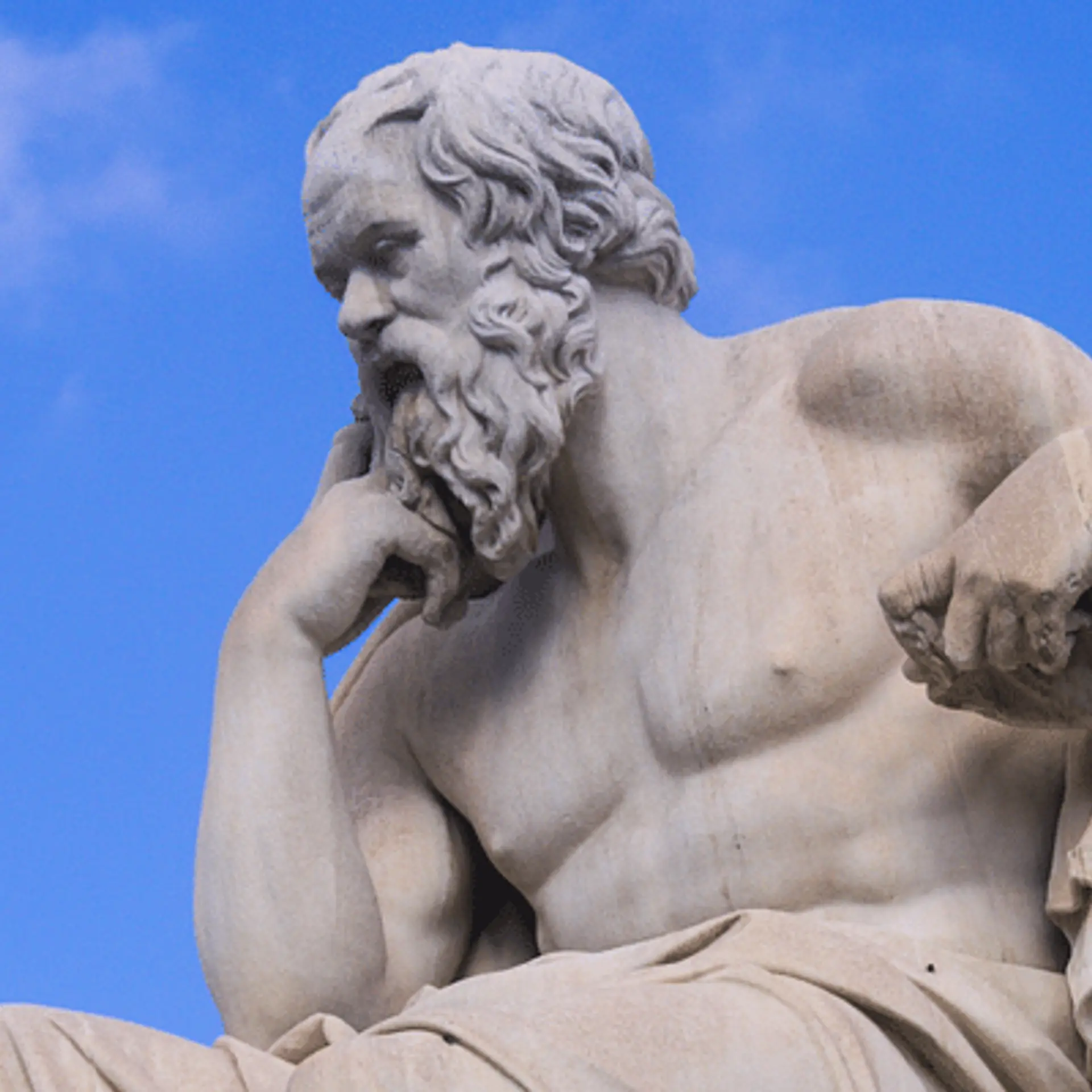Art as aesthetic, aspiration, asset – curator insights and visual treats from India Art Fair 2022
In our second photo essay on this 13th annual showcase of Indian art, we feature more stunning artworks and curator tips. Read, share, buy!
Launched in 2014, PhotoSparks is a weekly feature from YourStory, with photographs that celebrate the spirit of creativity and innovation. In the earlier 600 posts, we featured an art festival, cartoon gallery. world music festival, telecom expo, millets fair, climate change expo, wildlife conference, startup festival, Diwali rangoli, and jazz festival.
After a two-year gap due to the pandemic, the annual India Art Fair (IAF) recently wrapped up its 2022 edition. See Part I of our coverage, and five-part showcase on the 2020 edition here.
It featured 77 exhibitors, including 63 galleries and 14 institutional participants from 16 cities in India and beyond. Overall, the works of 500 modern and contemporary artists were displayed, along with panel discussions, live performances, and workshops.
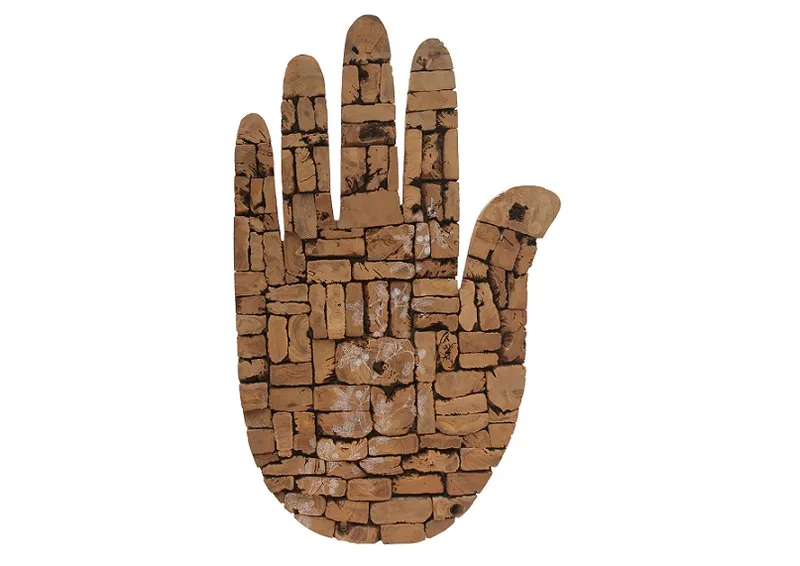
Vijay Pichumani -100 Gold 2021 - Studio-Art
Showcases and sales
“Tapping into the growing interest amongst millennials and a new generation of audiences, the fair also introduced an expanded Young Collectors Programme with the aim of educating and empowering new collectors,” explains Jaya Asokan, Fair Director.
“Since the pandemic has caused a paradigm shift in the global art market, the purpose of art fairs has taken on a new relevance, which prompted us to reconsider our role within the art world,” she adds.
“We have never experienced this kind of appetite for higher-end art, with people willing to pay prices between INR 50,00,000 to INR 5,00,00,000 for the masterpieces we have on display,” says Ashish Anand, CEO and MD, DAG (see our earlier coverage of DAG exhibitions here).
“There was something for everyone at our booth, with works ranging from INR 75,000 to INR 11,00,000. We sold out completely on day one,” according to Anahita Taneja and Shefali Somani, Founders and Gallery Directors, Shrine Empire.
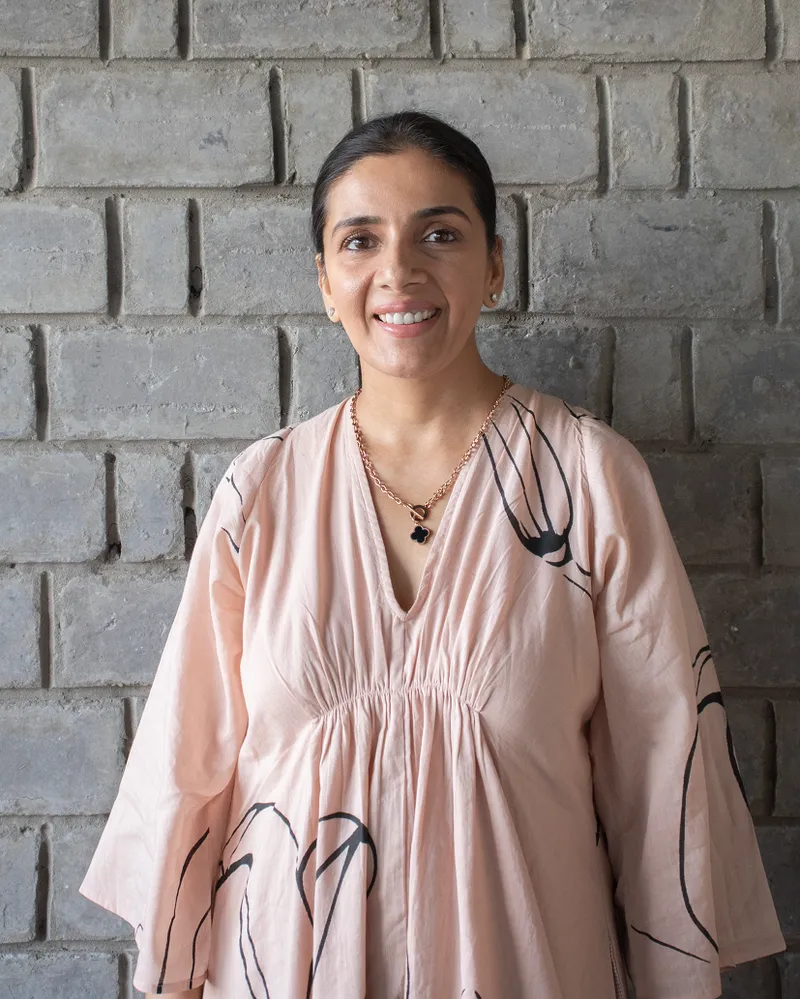
Jaya Asokan
Art and meaning
“Art is an important medium for creating awareness and opening minds to new ideas,” explains Vida Heydari, Founder of Vida Heydari Contemporary (VHC), in a chat with YourStory.
“Art in its uncensored form is also a documentation of history. Art adds aesthetics and beauty to our lives, and it has become a lifestyle,” she adds.
“As a gallery, I think our primary role is to showcase aesthetic expressions that engage with the times we live in while being rooted in our context and visual culture,” says Renu Modi, Director, Gallery Espace.

Artist: Khalil Chishtee, Courtesy Studio Art
“Art and craft have to be a part of our living culture, it cannot be segregated. Sadly, the commerce of it intimidates the lay man,” observes Tunty Chauhan, Director, Threshold Art Gallery.
“In our programming, we try to balance our shows keeping this in mind. I do not shy away from tradition, skill or craft. There is no art without this grounding,” she adds.
“Art is essential for making life meaningful. It moves the world in a better direction, it opens our mind and gives larger sense to all,” Karla Osorio Netto, Director of Galeria Karla Osorio (GaKO) emphasises.
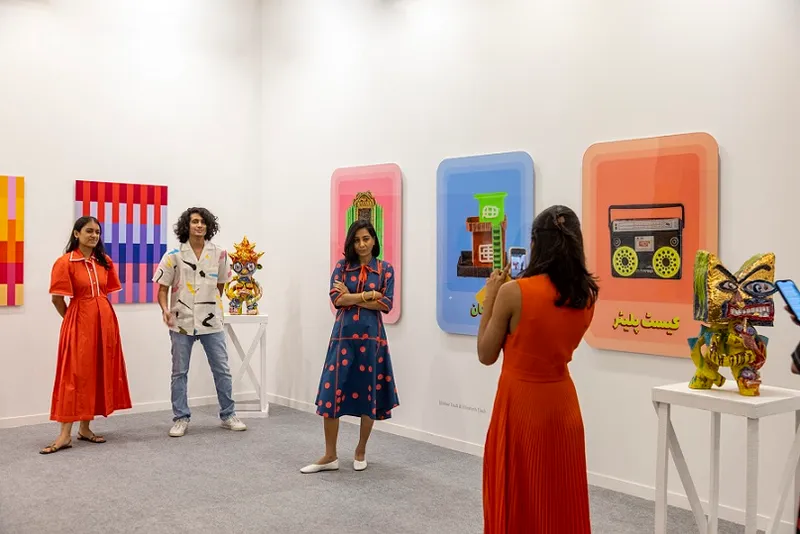
“Art stepped into my life as an extended playground since my family has been into art ever since I was awakened to my senses. As a Bengali, art is an integral part of our aesthetic development,” affirms Somak Mitra, Director/Owner, Art Exposure Gallery.
As a gallery owner, he finds art quite motivating as well. “Galleries give platforms to artists and ensure creative and financial support for the minds and hands that shape our society, thoughts, styles, and traditions, and become voices of societal concerns,” he adds.
“Art is indeed an asset class! However, how we perceive it is something that becomes a part of your living. The art you live with mirrors your own inner state,” observes Mandira Lamba, Co-founder, Gallery Blueprint 12.
“In addition, contemporary art is a reflection of the contemporary belief of a society. So it does play an important role as a medium to convey one's beliefs,” she says.
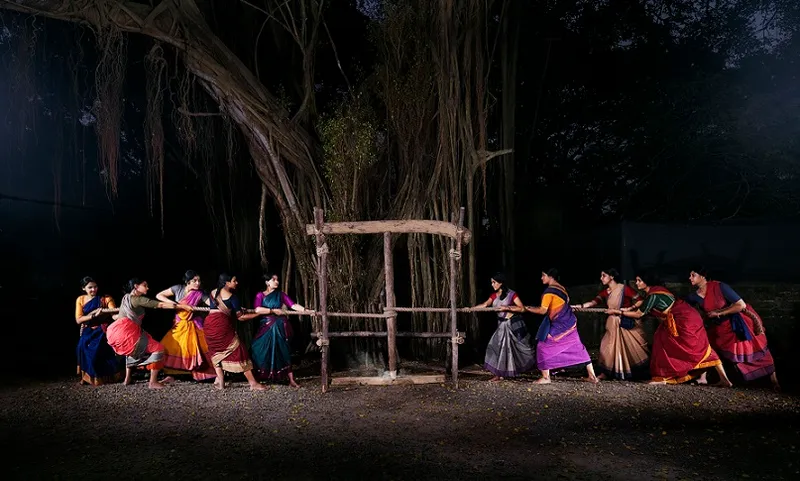
Vivek Vilasini - Fire-Stokers, Courtesy Sakshi Gallery
Art appreciation and collection
The curators also offer tips for audiences on the importance of appreciating art and even becoming art collectors and buyers.
“A true personal connect and instinct should be ideally the foremost step while acquiring a piece of art. I believe collectors must not fall in the trap of following a certain fad,” advises Urvi Kothari, Gallery Manager, Tao Art Gallery.
“While budget may be an important factor, an emotional connect with the artwork and willingness to spend a lifetime with the piece is imperative. Art is not just a liquid asset and is something absolutely worth cherishing for a lifetime,” she affirms.
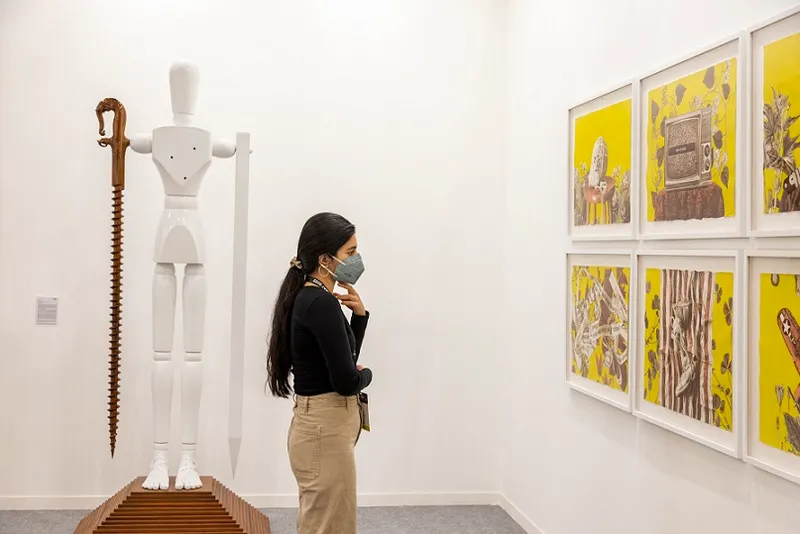
The Guild installation
“Open you heart and mind to artists and artworks that move you deeply. Follow and collect artists who are really committed to deep research and are passionately engaged with their own art work,” Karla Osorio Netto advises.
“Trust galleries who are really committed to their artists and invested in showing them as widely as possible,” she adds. She wishes people were more open minded to discover new artists and to enlarge their approach towards art in the world.
“My tip for art collectors is the same as always – trust your instincts and buy what you like. Also, follow what is happening in the art world,” Renu Modi advises.
“If there are artists you like, read up about them and look at their works in exhibitions where they participate. And finally, buy contemporary art – it’s the art that you will grow with,” she adds.
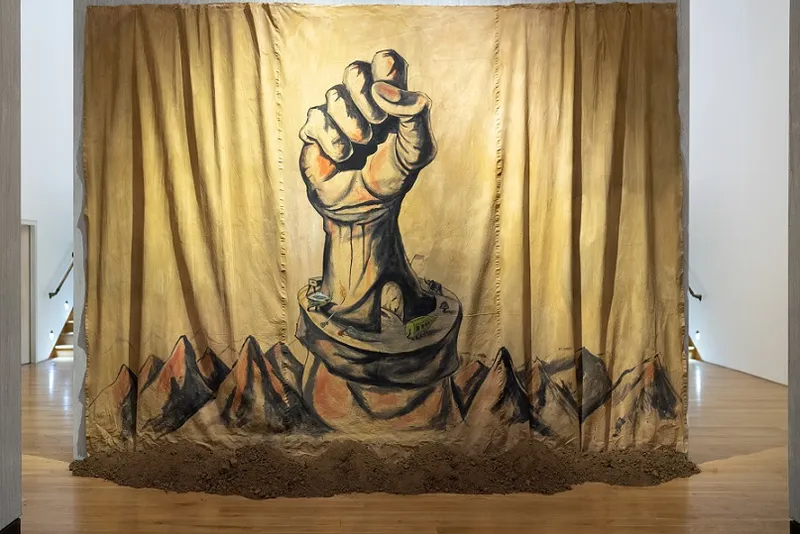
Prabhakar Pachpute – A march against the lie
“Develop a good rapport with a gallery and patiently build up a collection. The more you see, the more you understand,” Tunty Chauhan suggests.
“Art is an asset class that can be bequeathed. Don’t buy something that matches the décor because that decor will change after five or seven years – the painting will last a lifetime,” she adds.
“Collectors should look to pick art that they truly enjoy and not only for investment. They should also look at younger artists, invest in them, and over a period of time build collections around them,” Vida Heydari suggests.
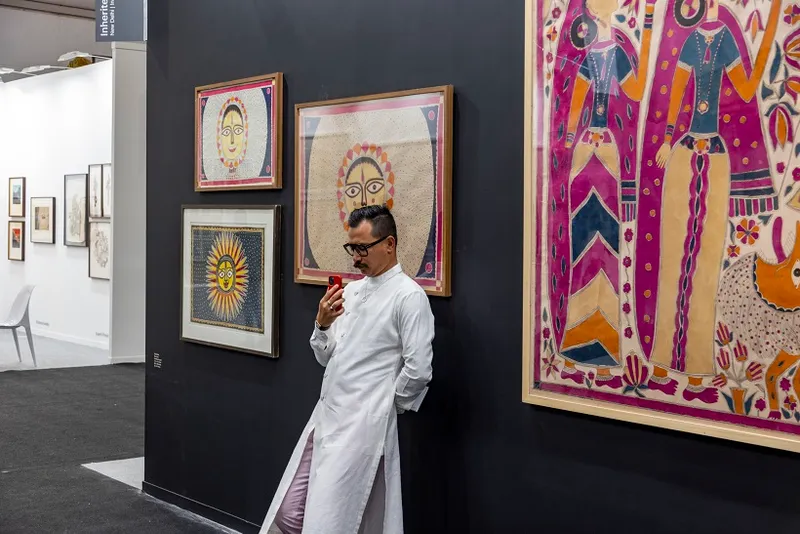
Inherited Arts Forum installation
Jaideep Mehrotra, whose artworks were showcased by Tao Art Gallery, advises art collectors to foremost invest in what they can enjoy and live with. “It’s also important to follow an artist’s trajectory and interact with them over a long period, as this adds a whole new dimension to the acquisition,” he explains.
“Not only does the work grow with you and your collection, it also adds meaning to it,” Jaideep affirms.
Mandira Lamba sums up: “Don't buy with your ears but your eyes!”
Now, what have you done today to pause in your busy schedule and find new avenues to apply your creativity?
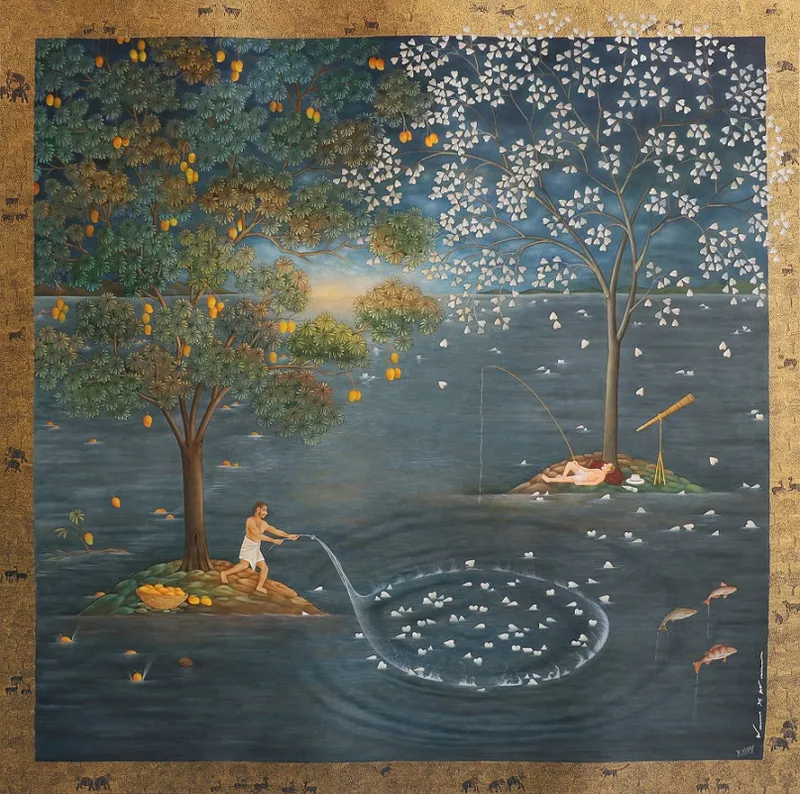
R.Vijay Waswo X. Waswo – Untitled, Blue Series – Courtesy Gallery Espace
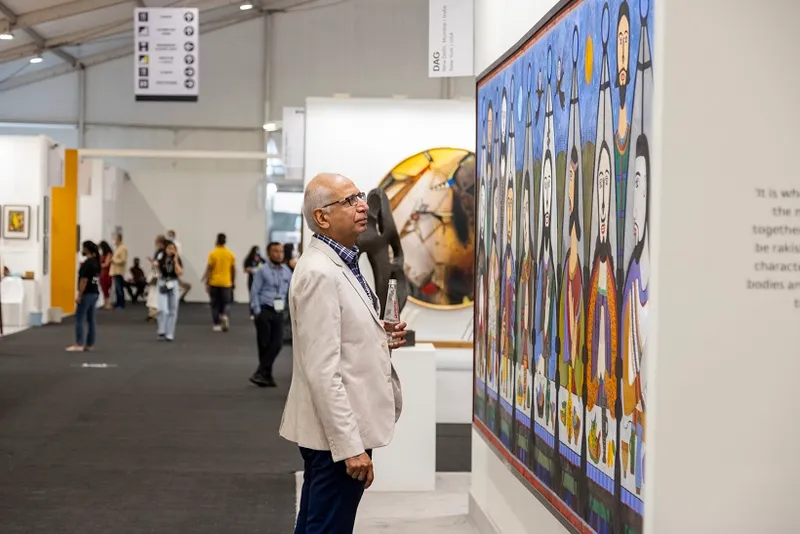
DAG installation
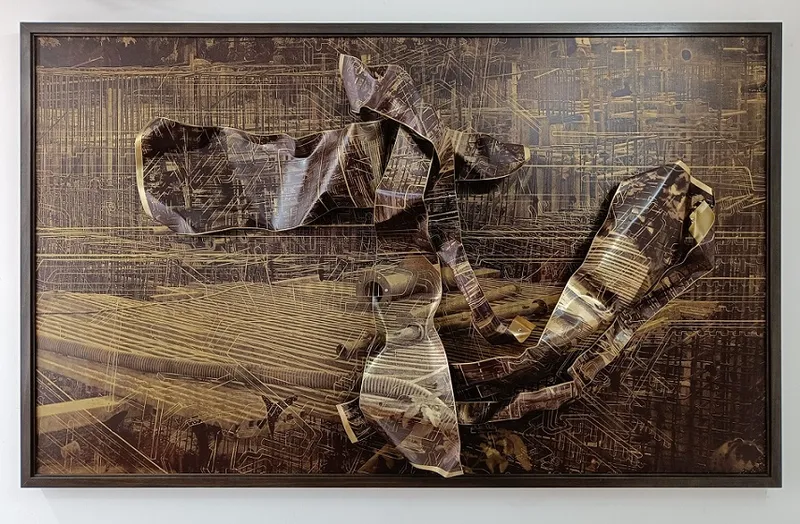
Development Redevelopment - GaKO
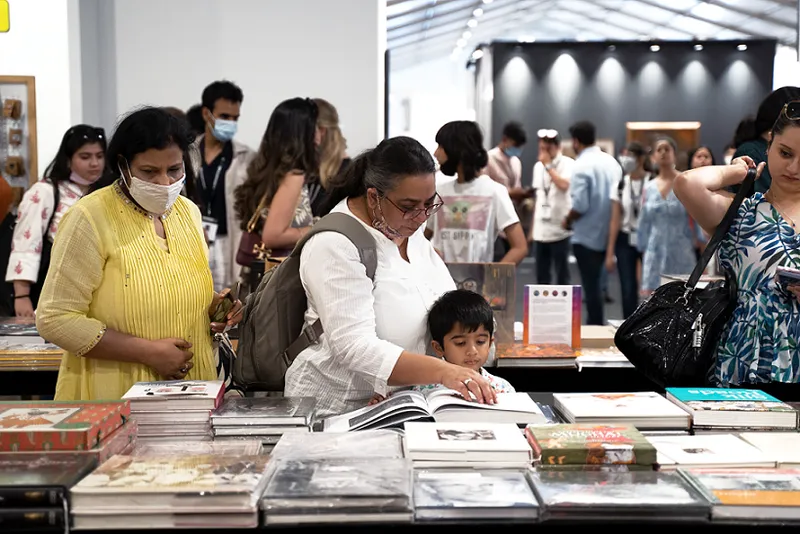
India Art Fair Bookshop
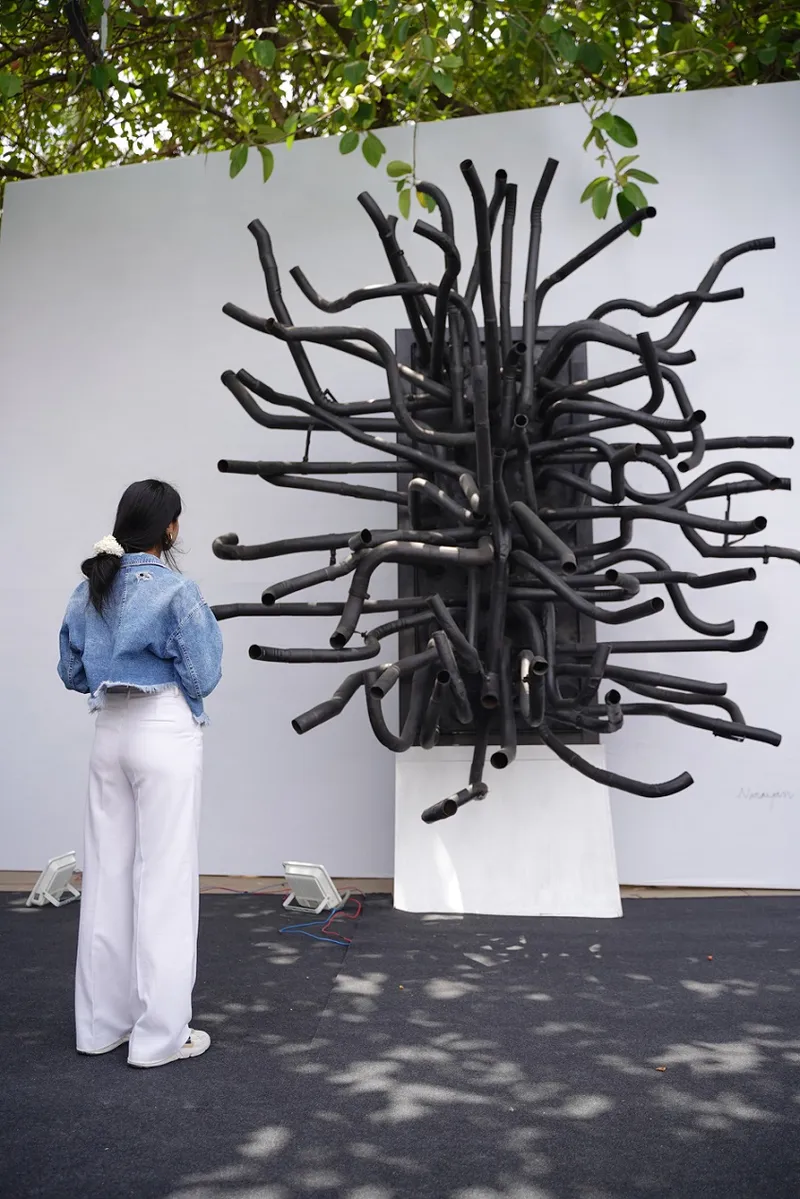
Narayan Sinha Engulf installation
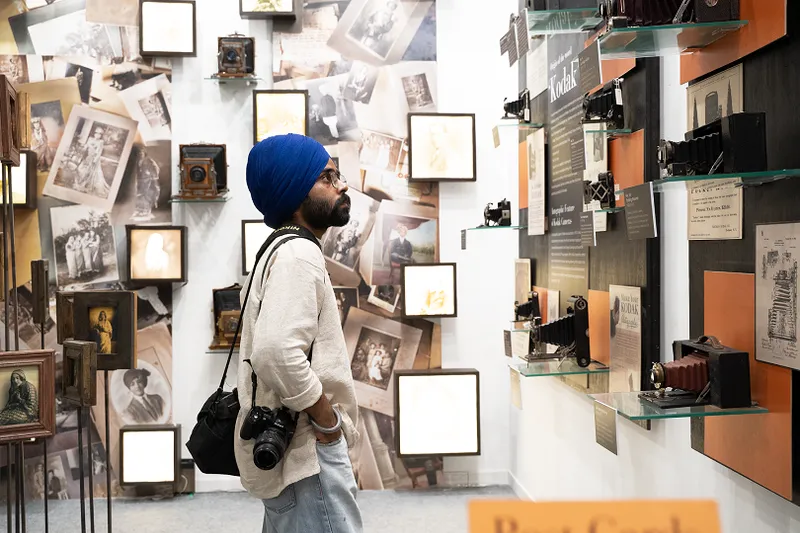
Museo Camera installation
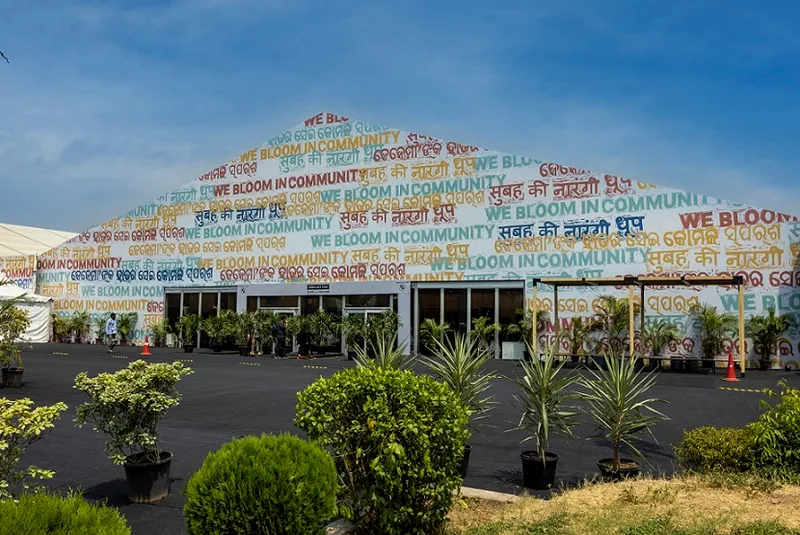
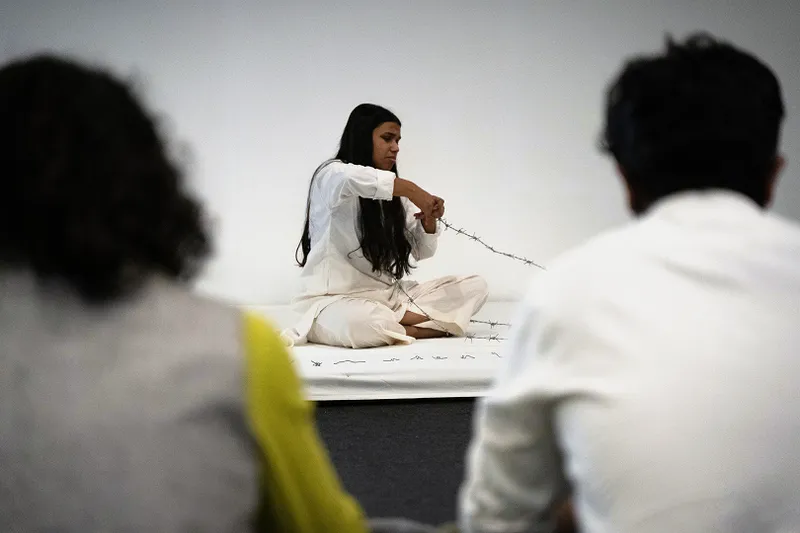
Performance by Arpit Akhanda
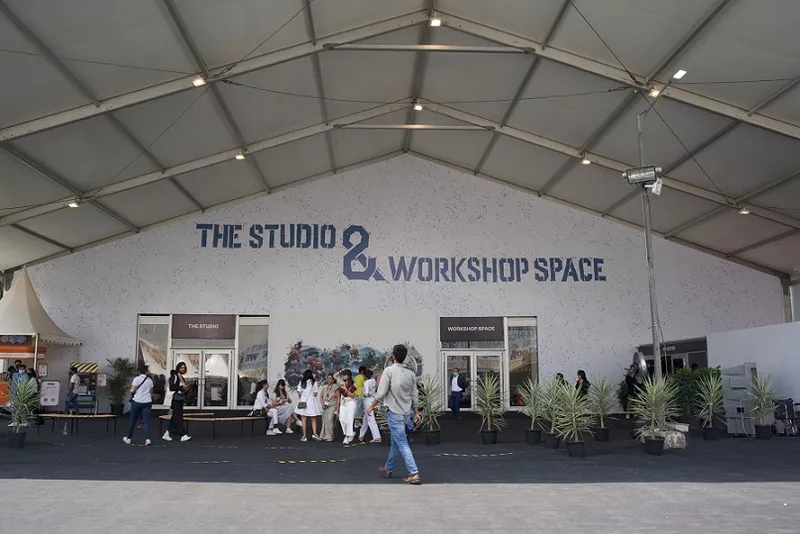
The Studio and Workshop Space
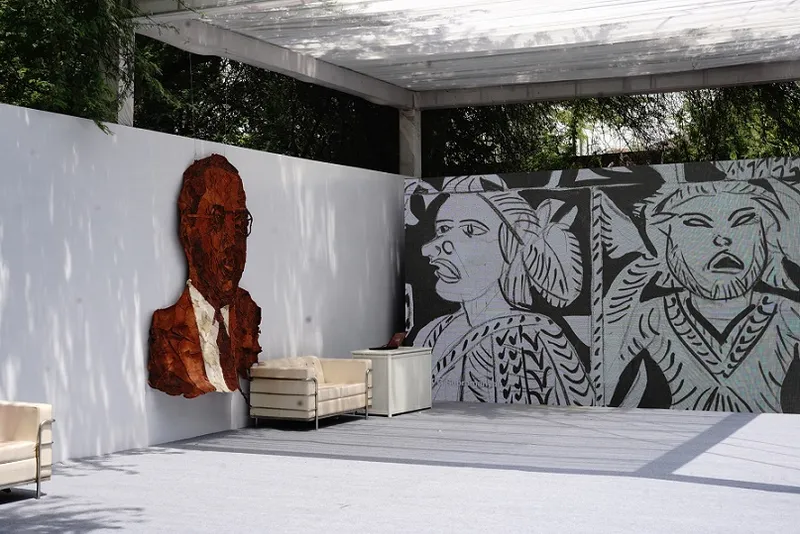
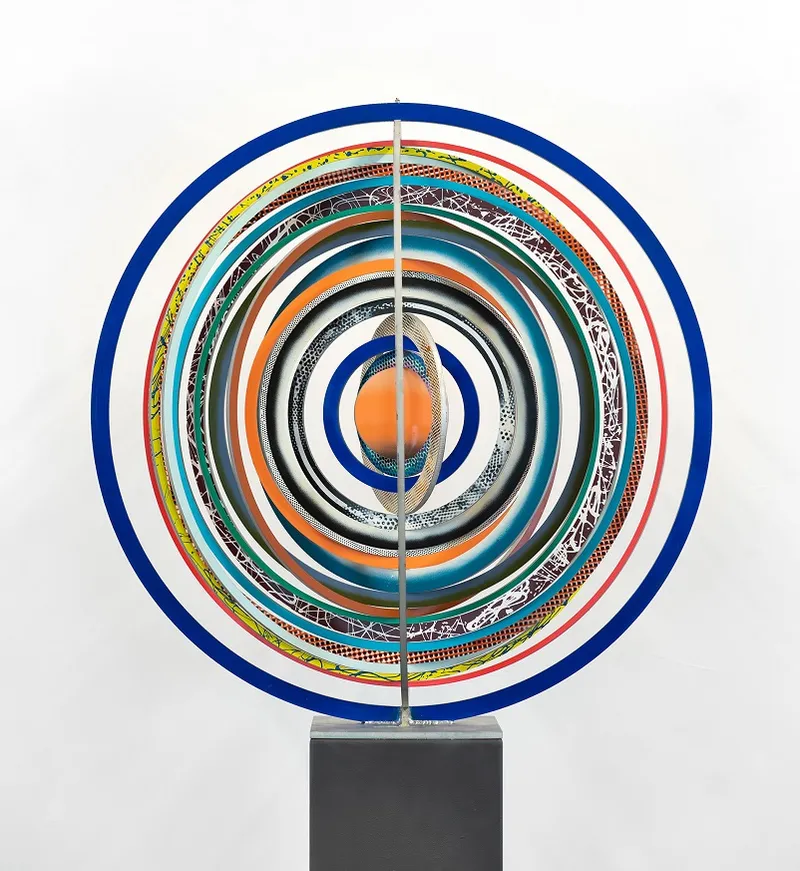
Christian Achenbach – Sphere - Courtesy Galerie ISA
(All images courtesy India Art Fair and respective curators/owners.)
See also the YourStory pocketbook ‘Proverbs and Quotes for Entrepreneurs: A World of Inspiration for Startups,’ accessible as apps for Apple and Android devices.



![[Year in Review 2021] Top ten changemakers of the year](https://images.yourstory.com/cs/5/79900dd0d91311e8a16045a90309d734/collage1-1639488579193.png?fm=png&auto=format&h=100&w=100&crop=entropy&fit=crop)
![[Year in Review 2021] Amid COVID-19, these 10 non-profits created social impact this year](https://images.yourstory.com/cs/5/79900dd0d91311e8a16045a90309d734/collage-1640102486726.png?fm=png&auto=format&h=100&w=100&crop=entropy&fit=crop)

![[Funding alert] B2B platform Infra.Market raises Rs 50Cr in debt from InnoVen Capital](https://images.yourstory.com/cs/2/b87effd06a6611e9ad333f8a4777438f/Imageqgxz-1608543178425.jpg?mode=crop&crop=faces&ar=1%3A1&format=auto&w=1920&q=75)
![[Funding alert] Infra.Market joins the unicorn club, raises $100 million in a Series C round led by Tiger Global](https://images.yourstory.com/cs/2/11718bd02d6d11e9aa979329348d4c3e/Imageopwm-1611036451768.jpg?mode=crop&crop=faces&ar=1%3A1&format=auto&w=1920&q=75)

